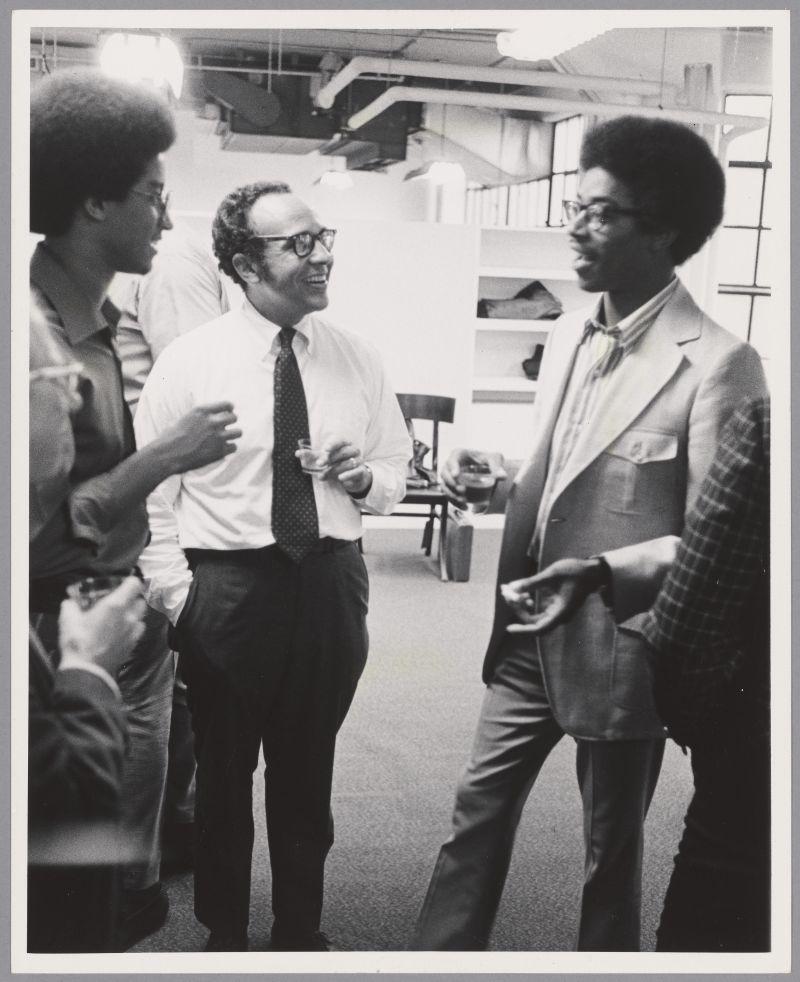Frank S. Jones, Richard Prather, and Thomas Welch, ca. 1970

Professor Frank Jones (center) talks with Richard Prather '72 (left) and Thomas Welch MCP '73, at a reception introducing the Community Fellows to members of the Dept. of Urban Studies and Planning (Tech Talk, 22 September 1971).
Frank Sidney Jones made history in 1970 as the Institute's first African-American tenured faculty. As the Jones Ford Professor of Urban Affairs and Planning in the Department of Urban Studies and Planning (DUSP), he taught courses in civil engineering. Jones founded Project Technology, Race and Poverty, which he directed from 1970 to 1973, and served as the first Director of the Community Fellows Program (see below) from 1971 to 1975. He served on a committee to urge MIT to found the Office for Minority Education (OME) in 1974 with the aim of recruiting and retaining minority students. Today the Frank S. Jones Student Activity Fund supports students working on community-based projects and activities in the Department of Urban Studies and Planning. Richard Prather '72 earned an SB in Urban Studies and Planning from MIT in 1972, an MBA from Stanford University in 1976, and later became the Chief Information Officer at Chemonics International. Thomas F. Welch MCP '73 earned his Master in City Planning in 1973.
Community Fellows Program
In 1970 Melvin H. King, the Director of the New Urban League of Boston, presented an exciting fellowship idea to the administration of MIT. He felt strongly that there was a critical need for community activists and leaders--people of color--to have an opportunity for a year of study, reflection, and research. King had seen first hand how talented and productive activists become "burned out" on community "battlefields" and, consequently, lose their effectiveness. He posited that a mid-career fellowship program for community practitioners would generate new energies and perspectives for them and provide for the acquisition of new skills and tools to enhance their effectiveness in future work. The administration of MIT responded favorably to the proposal, and, in September 1971, the Community Fellows Program was launched under the auspices of the Department of Urban Studies and Planning. It has been principally funded by grants from the Rockefeller and Mellon Foundations and MIT resources. Frank S. Jones, Ford Professor of Urban Affairs, served as the first Director from 1971 to 1975.
Since the 1978-77 fellowship year, half of the Fellows have come from service in governmental agencies. There are a growing number of minority officials in strategic locations in governmental agencies responsible for funding community development programs. The Community Fellows Program offers these officials a chance to be reoriented to the range of development programs in minority communities so they can become more effective advocates within public agencies.
Mel H. King, MIT Community Fellows Program